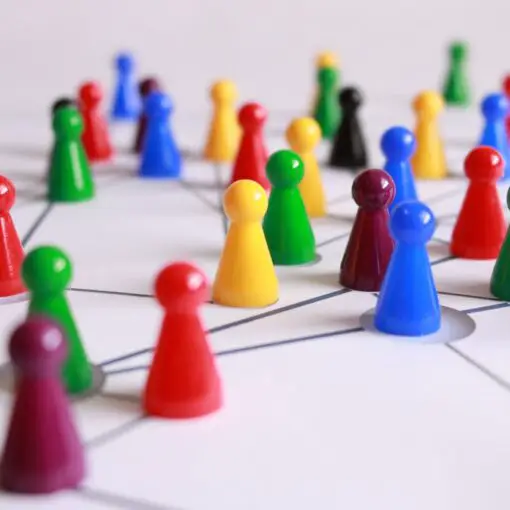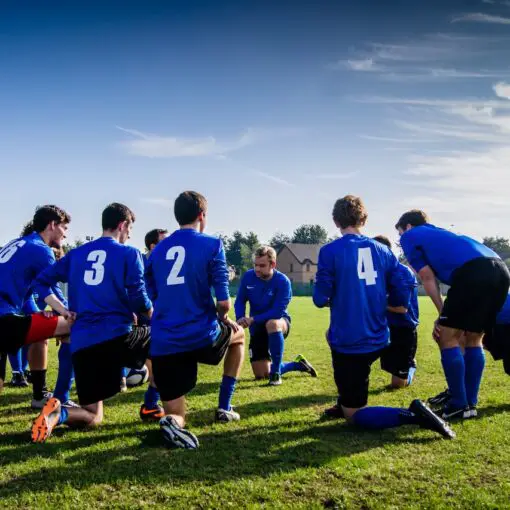Critical thinking is an essential skill in today’s information-heavy world. It helps individuals navigate through vast amounts of data and determine what is accurate and useful. This article aims to provide you with key questions that can be used in any situation to enhance your critical thinking abilities.

Asking the right questions can empower you to evaluate information effectively and make better decisions. Whether it’s assessing news articles, evaluating work presentations, or deciding on personal matters, these questions will guide your thought process. By incorporating these into your daily routine, you can sharpen your analytical skills and gain a clearer understanding of various topics.
1) What are the underlying assumptions?

Underlying assumptions are beliefs we accept without proof. These can shape our decisions and views. They often go unnoticed yet influence our thoughts and actions significantly.
In critical thinking, recognizing these assumptions is crucial. They might be hidden but can affect how we understand information. For example, thinking all teenagers are tech-savvy is an assumption that might not always be true.
Assumptions can be based on personal experiences, cultural norms, or societal expectations. These assumptions can lead to bias if not examined. Challenging them helps in forming a clearer, more unbiased perspective.
A critical thinker asks what assumptions are being made. They evaluate if these beliefs are real or just presumed. By questioning underlying assumptions, one can uncover hidden biases and make more informed decisions.
For more about identifying assumptions, visit Critical Thinking and Academic Research.
2) How relevant is this information to the issue?

Whenever one faces a problem or decision, assessing how relevant the information is to the issue is crucial. It’s about filtering out noise and focusing on what truly matters.
Relevance helps in narrowing down the data, ensuring that only useful details are considered. This prevents distractions and keeps problem-solving on track.
It’s vital to ask whether the information directly impacts the decision or if it’s just peripheral. Recognize which details support the objective and which ones do not.
Relevance also impacts the quality of decisions. Using relevant information ensures more accurate and reliable outcomes.
Evaluating relevance involves looking at the direct connection between the facts and the issue. It requires critical thinking and the ability to discern what’s important.
3) What are the possible consequences?
Thinking about possible consequences can help make better decisions. This involves anticipating both positive and negative outcomes of an action.
It is crucial to consider how a decision will affect various aspects of life. For example, a choice made at work can impact both professional reputation and personal well-being.
Considering consequences also means thinking about short-term and long-term effects. Some decisions might bring immediate benefits but lead to problems later. Balancing these factors helps avoid unwanted surprises.
Understanding potential consequences can guide towards more responsible actions. One way to do this is by asking, “If I do this, what might happen next?” This approach fosters careful and deliberate decision-making.
For instance, if a student decides not to study, the immediate consequence might be more free time. However, the long-term consequence could be poor grades. Recognizing this helps in making informed choices.
It’s also important to think about consequences for others. Actions can affect family, friends, and colleagues. By considering these impacts, one can act more ethically and thoughtfully.
In any situation, weighing possible consequences ensures a more comprehensive understanding of potential outcomes. It promotes a balanced approach and reduces the risk of negative results.
4) What evidence supports this claim?
When evaluating a claim, it’s important to ask for evidence. Evidence can include data, statistics, expert opinions, or firsthand experiences. This helps to verify the truthfulness of the statement.
Having solid evidence makes an argument stronger. For example, in academic settings, using evidence to support your argument is crucial. It helps to convince others of your point of view.
In discussions or debates, asking for evidence forces clearer thinking. This can prevent the spread of misinformation. According to Harvard University, identifying a claim and seeking evidence creates a more informed dialogue.
Always consider the source of the evidence. Reputable sources are more reliable. This ensures that the evidence is valid and trustworthy. By consistently asking for and examining evidence, you can improve your critical thinking skills effectively.
Can this viewpoint be challenged?
When considering any viewpoint, it’s crucial to ask if it can be contested. This question opens the door to examining the strength and validity of the perspective.
By challenging a viewpoint, one can explore potential weaknesses or flaws. This process is essential in critical thinking, as it encourages deeper analysis and understanding.
For instance, in a debate, questioning the opposition’s view helps identify any assumptions or biases. This scrutiny can lead to a more balanced and fair discussion.
Additionally, examining opposing viewpoints provides a broader perspective. Recognizing that multiple perspectives exist fosters a more comprehensive grasp of the topic.
Moreover, considering alternative views encourages flexibility in thinking. It helps individuals avoid rigid or narrow-minded approaches.
Encouraging students to question can promote critical inquiry in educational settings. Asking “Can this viewpoint be challenged?” engages students in active learning and reflection.
To summarize, always ask if a viewpoint can be challenged. This question is key in fostering thoughtful and informed discussions.
For more questions that foster critical thinking, such as analyzing the relevance of information, you can explore resources like TeachThought’s list of questions.
6) What Are the Alternatives?
When faced with a decision, it’s important to ask, “What are the alternatives?” This question encourages you to consider other options and not just stick to the first idea that comes to mind.
Exploring alternatives can reveal better solutions that might not have been obvious initially. It widens the scope of possibilities and helps in finding the best possible choice.
Sometimes, the best option isn’t the most convenient one. Asking about alternatives encourages more thoughtful decision-making. It ensures that all potential paths are evaluated.
Considering alternatives can also help identify any potential risks or benefits not initially evident. This leads to more informed and balanced decisions.
For instance, if a manager needs to improve team productivity, they shouldn’t just implement the first suggested tool. They should think about various tools and methods, comparing their pros and cons.
Asking “What are the alternatives?” is a habit of strong critical thinkers. It ensures they are not limited by initial impressions and are open to different perspectives.
Tools like brainstorming sessions and mind maps can be helpful in identifying and evaluating alternatives. These methods ensure a thorough exploration of all possible options.
7) Who benefits from this?
When examining a situation, it’s key to identify who stands to gain.
Understanding who benefits helps uncover motivations. For example, if a new policy is implemented, ask who benefits from this. It could be companies, individuals, or specific groups.
Looking at all angles can provide clarity. Different stakeholders may have varying benefits. Some might gain financially, while others might receive social or political advantages.
Knowing the beneficiaries can also reveal any potential biases. If a project benefits only a small group, it might not serve the wider community well.
This question is essential because it digs deeper into the heart of the issue. It gets to the core of why certain actions are taken and who is truly advantaged.
8) What are the sources of bias?
Bias can stem from many areas. Personal opinions and values are common sources. If a person holds strong beliefs, these can color their judgment and decision-making.
Preconceived notions also play a big role. When someone has a fixed idea about something, they may ignore new information that contradicts their belief.
Cognitive biases are another source. These are mental shortcuts that affect how people process information. The Khan Academy explains that these can lead to errors in thinking.
Social biases, like racism or sexism, come from societal influences. These explicit biases can affect how someone views and treats others based on group identity.
Unconscious biases are hidden preferences that influence decisions without awareness. These implicit biases can be just as powerful as explicit ones.
External influences such as media and peers can also introduce bias. News sources and social circles can shape opinions and views, often without one noticing.
Understanding these sources can help in recognizing and mitigating bias in decision-making.
9) Is the argument logically sound?
A crucial step in critical thinking is to check if an argument is logically sound. A sound argument is one that is both valid and has true premises. Valid arguments have a structure where the conclusion follows logically from the premises.
If any premise of an argument is false, the argument cannot be sound. This means that even if the logic is valid, the argument fails because it is based on incorrect information. It’s important to verify the truth of each premise before accepting the conclusion.
One way to practice this is by asking if the premises logically lead to the conclusion without any gaps. For example, an argument that states, “All humans are mortal. Socrates is a human. Therefore, Socrates is mortal,” is sound because both premises are true and lead to a logical conclusion.
When evaluating arguments, look for common fallacies. These can include ad hominem attacks, false dilemmas, or appeals to authority. For instance, claiming a law is unconstitutional because a friend, who is a lawyer, said so might be an example of a fallacy.
In summary, ensuring an argument is logically sound involves checking both the validity of its structure and the truth of its premises. This helps in making informed decisions based on reliable reasoning.
10) What is the context of this situation?
Understanding the context of a situation is crucial for effective decision-making. Context includes the background and framework within which events occur. It helps identify the relationships between different elements in a scenario.
Context can include historical background. This involves looking at past events that might influence the current situation. Knowing what has happened before can provide insight into why things are the way they are now.
Another aspect of context is the environment. This means understanding the physical, social, or cultural setting. For example, a decision in a corporate environment may differ greatly from one made in a community-based setting.
Stakeholder perspectives also define the context. Understanding who is affected by the situation and what their interests are can guide more empathetic and effective choices. This includes considering the opinions, motivations, and potential biases of everyone involved.
Economic factors can be part of the context as well. Financial constraints or incentives often play a role in shaping decisions. Understanding the monetary aspects can lead to more informed and practical outcomes.
Lastly, legal and ethical considerations are essential. Rules, laws, and ethical norms provide boundaries within which decisions must be made. Ignoring these can lead to negative consequences.
Knowing the context ensures that decisions are not only well-informed but also sensitive to the broader environment and potential impacts. This comprehensive understanding can lead to better, more sustainable outcomes.
The Importance of Critical Thinking
Critical thinking is essential because it enhances decision-making and problem-solving skills. It impacts both personal growth and career development by fostering informed opinions and objective analysis.
Why Critical Thinking Skills Matter
Critical thinking allows individuals to analyze and break down complex issues. By asking better questions, people can make more informed decisions. It involves understanding and evaluating information rather than just accepting it. This skill helps in identifying biases and making logical connections. According to the Harvard Business Review, critical thinking is at the heart of problem-solving, enabling individuals to tackle challenges efficiently.
Impact on Personal and Professional Life
In personal life, critical thinking improves self-awareness and reduces limitations set by negative beliefs. This leads to better decision-making and a higher quality of life, as noted by the University of the People. Professionally, it is crucial for the economy and enhances skills like communication and presentation. Being able to think critically means considering all options and their potential impacts, which is valuable in any career. This approach leads to well-informed opinions and effective problem-solving strategies, making individuals indispensable in their fields.
Applying Critical Thinking in Various Contexts
Applying critical thinking helps individuals analyze information and make better decisions. It is useful in different areas such as work, education, and everyday life.
Critical Thinking at Work
In the workplace, critical thinking can improve problem-solving. Employees who evaluate situations carefully often find effective solutions. For instance, a manager might assess the root cause of a decline in sales before deciding on a strategy. This helps in making informed decisions.
Critical thinking also aids in teamwork. When team members question and discuss ideas, they develop better plans. For example, during a project, brainstorming sessions benefit from diverse opinions. This approach ensures that the final plan is robust and well-thought-out.
Employers value critical thinkers. These employees can foresee potential issues and address them proactively. They contribute to a more efficient and innovative work environment. Companies benefit from having staff who can handle complex situations thoughtfully.
Critical Thinking in Education
In education, critical thinking enhances learning. Students who question assumptions and analyze texts develop deeper understanding. For instance, when studying historical events, they evaluate causes and consequences, leading to a more comprehensive grasp of history.
Teachers encourage critical thinking through discussions and problem-based learning. Rather than just memorizing facts, students engage with the material. This active participation helps them retain information and apply it in real-world situations.
Critical thinking prepares students for future challenges. By learning to think critically, they become better equipped to tackle complex problems. This skill is essential for success in higher education and future careers.
Everyday Decision Making
Critical thinking is valuable in daily life. It helps individuals make better personal decisions. For example, before buying a product, a person might research reviews and compare prices. This careful evaluation ensures that they get the best value.
In health-related choices, critical thinking is crucial. Evaluating medical advice and considering all options lead to better health outcomes. For instance, understanding the benefits and risks of a medical procedure helps in making informed decisions.
It also aids in resolving conflicts. By considering different perspectives, individuals can find peaceful solutions. Critical thinking fosters empathy and understanding, making personal interactions more harmonious.
Enhancing Your Critical Thinking Abilities
Improving your critical thinking skills involves developing specific techniques and overcoming barriers that can hinder your progress.
Techniques for Improvement
One effective way to boost critical thinking is by asking open-ended questions. This can help uncover deeper insights and encourage detailed responses. Questions like “Why do you think this happened?” or “What are the possible outcomes?” can stimulate deeper thought.
Another technique is to engage in active listening. Focus on understanding the speaker’s point of view and consider the context before forming an opinion. This practice helps in evaluating information accurately.
It’s also useful to practice problem-solving regularly. Tackle puzzles, play strategy games, or engage in debates. These activities train the mind to think critically under different scenarios.
Finally, maintain a habit of continuous learning. Staying informed on various topics broadens your perspective, making it easier to analyze situations from multiple angles.
Overcoming Common Barriers
A major obstacle to critical thinking is cognitive bias. These biases can cloud judgment and lead to poor decisions. Being aware of common biases like confirmation bias or anchoring can help you recognize and counteract them.
Stress and time constraints can also hinder critical thinking. Practicing stress management techniques such as meditation or time management can create a more conducive environment for thoughtful analysis.
Another barrier is the lack of confidence. To overcome this, focus on building self-assurance through practice. Engaging in group discussions or seeking feedback can provide different perspectives and boost confidence.
Lastly, an unwillingness to challenge assumptions can impede critical thinking. Commit to questioning existing beliefs and explore alternative viewpoints, allowing for a more comprehensive understanding of any situation.





